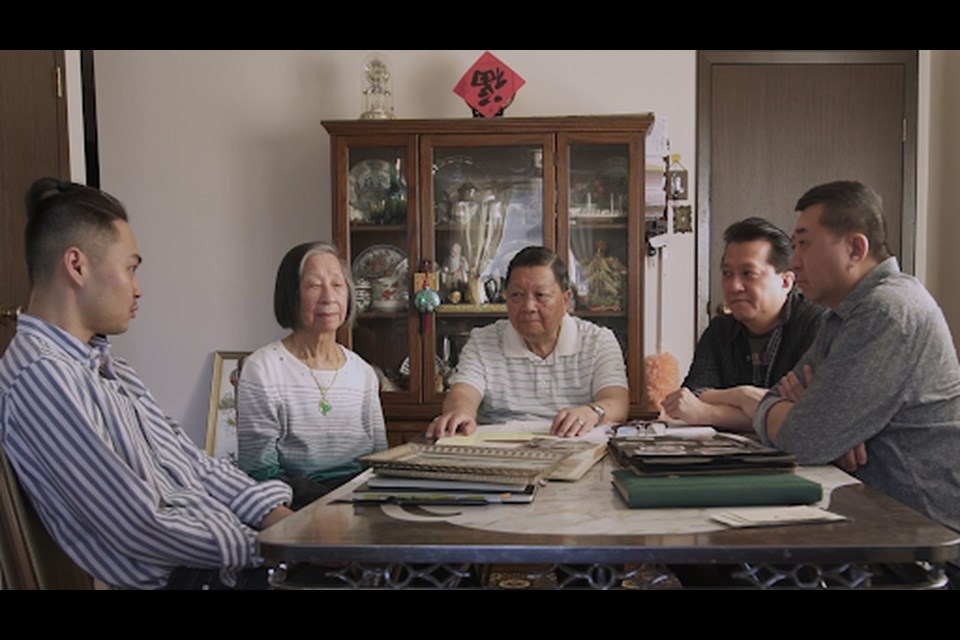MOOSE JAW — Toronto-based director Weiye Su created his latest featured short documentary, ‘, all because of an unsettling visit to a tourism attraction called the ‘Tunnels of Moose Jaw’.
The 16-minute short film follows members of the Chinese-Canadian community in Moose Jaw and is available to view on the National Film Board of Canada streaming website as of May 22.
“Someone once told me, in Saskatchewan, every town has a Chinese restaurant and story,” Su said. Moose Jaw, a small town populated by more than 33,000 people, is one of several early settlement spots for Chinese people in Canada.
According to the Moose Jaw Chinese Association, hundreds of Chinese people migrated to Moose Jaw in the early 1880s to lay tracks for the Canadian Pacific Railway, which quickly led to the growth of Chinese small businesses, establishments, and .
However, Su was less than enthused to find a display entitled ‘Passage to Fortune’ within the ‘Tunnels of Moose Jaw’ tourist attraction.
On its website, the business explains: “You become an immigrant and follow in their footsteps through Burrows and Sons Laundry, in darkened tunnels under the streets and in the kitchen of Mr. Wong’s café.”
“After the tour, I felt ashamed and disrespected and wondered what the Chinese community would say,” Su said. Visiting the tourist attraction prompted him to start his project.
‘They never talked to the Chinese community’
“The concept is primarily inspired by the stereotype of early Chinese immigrants who sought fortune in this country,” Su said. “However, this film aims to highlight that their experiences go beyond material wealth and encompass myriad struggles and challenges.”
The documentary starts with a local myth in Moose Jaw — that of early Chinese immigrants working and living in the darkened tunnels under the city streets. The film then introduces the local Chow family to dispel the myth.
Gale Chow, the elderly father, is a descendant of a Chinese head taxpayer, who stays closely with his family for a decent and financially self-sufficient life in Moose Jaw.
“When the tunnels started, they never talked to the Chinese community,” Chow recounted in the film. “They say Chinese people lived in (the tunnels] and hid in here…not that I know of!”
The film is dubbed with a similar name as the tour, and through it, Su offers a homage to the culturally significant but buried history of Chinese-Canadian communities in Moose Jaw.
The National Film Board of Canada which helped produce the film, reviews A Passage Beyond Fortune as not only “a homage to the Chows’ fortune of stories; it’s a gender archive containing the buried and blurred histories of those whose lasting cultural imprints have offered new ways of connecting with ourselves and our communities.”
‘We haven’t done enough’
The retired lives of Gale Chow and his wife Myrna are full of elements of traditional Chinese essentials, from the well-preserved old photographs of their younger years that captured the excitement of their local activities to the round table big family dinner at a local Chinese restaurant; from Gale’s traditional Chinese musical instrument ‘erhu’, to the nostalgia they bore when leaving their old home in Moose Jaw.
“We haven’t done enough,” Su said, adding this has become the inspiration for him to unfold the truth under the “tunnels of Moose Jaw”.
Indeed, from the official apology by then-Canadian Prime Minister Stephen Harper in 2006.
The symbolic compensation to the Chinese head taxpayers and their families only became a reality after a decades-long redress campaign organized by the Chinese communities from the west coast to the east.
“A commitment was made to establish funds to help finance community projects aimed at acknowledging the impact of past wartime measures and immigration restrictions on the Chinese Canadian community and other ethnocultural communities.” Harper acknowledged this in his speech during the official apology.
In 2008, the Government of Canada’s Community Historical Recognition Program was established. A $5 million fund was allocated for projects about Chinese immigration restrictions, leading to the creation of 33 art, music, film, literature, theatre and other art form projects.
As far as Su is concerned, this funding doesn’t go far enough when tourist attractions like the ‘Tunnels of Moose Jaw’ still exist.




